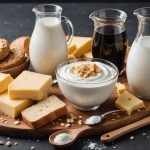Understanding the Importance of Hydration for Seniors
Staying hydrated is crucial, especially for seniors, due to the physiological changes that accompany ageing. As individuals age, their body’s ability to conserve water decreases, making hydration for seniors vital in avoiding health risks. A diminished sensation of thirst and the kidneys’ reduced efficiency in concentrating urine further contribute to dehydration risks.
Heatwaves pose additional threats, intensifying these challenges. During such periods, seniors may be more susceptible to heat-related illnesses due to their body’s reduced ability to regulate temperature and compromised cardiac function. Dehydration during extreme heat can lead to complications like heat stroke or exacerbate chronic health issues.
Also to see : How can seniors create a fall-proof home environment?
To mitigate these risks, maintaining proper hydration is paramount. Encouraging seniors to drink water regularly, even when they do not feel thirsty, can prevent dehydration. Including hydrating foods such as fruits and vegetables in their diet also supports hydration efforts. Awareness and proactive hydration strategies are essential for protecting seniors against both everyday and heatwave-related health risks.
Recommended Fluids for Optimal Hydration
When considering hydration fluids, it is crucial to identify options that provide optimal benefits, especially for seniors. Water remains the most efficient and readily available choice, promoting overall health and well-being. It is essential for maintaining bodily functions and preventing dehydration. However, other fluid recommendations can complement water intake.
Also read : What are the best nutritional tips for maintaining bone health in older adults?
Electrolytes, found in sports drinks, can be advantageous, particularly after physical activities. They help to replenish essential minerals and maintain the body’s balance. It’s important to opt for drinks with low sugar content to avoid unnecessary caloric intake.
Herbal teas serve as another excellent alternative for hydrating. They offer not only hydration but also come with added health benefits such as antioxidants. Moreover, coconut water is increasingly popular due to its natural source of electrolytes and refreshing taste. It is an ideal choice for those seeking a natural drink with a balanced nutrient profile.
While incorporating various drinks, it is advisable to limit caffeine and alcohol consumption. These can have a dehydrating effect and should be consumed in moderation to ensure optimal hydration levels. Best drinks for seniors should focus on minimizing these to maintain proper hydration.
Practical Hydration Strategies
Achieving proper hydration is vital, especially for seniors. By adopting effective hydration tips, seniors can maintain their well-being and energy levels.
Optimal Intake Frequency
Striking the right balance in daily fluid consumption is key. Experts recommend strategies for seniors such as evenly distributing water intake throughout the day, rather than ingesting large amounts all at once. Activity levels can greatly influence fluid needs; those with higher physical activity may require increased consumption to stay hydrated. Setting reminders with alarms or smartphone notifications can ensure consistent water intake and prevent forgetting crucial hydration.
Signs of Dehydration
Being vigilant about identifying dehydration signs is critical for seniors. Early symptoms include dry mouth, fatigue, and reduced urine output, which can easily be mistaken for other ailments. Specific symptoms like confusion or dizziness require immediate attention. Implementing preventative measures, such as regular check-ins on fluid intake and recognising personal patterns related to hydration levels, can help avert dehydration issues.
Hydrating Meals and Snacks
Incorporating naturally hydrating foods into meals is an excellent strategy. Seniors can benefit from consuming fruits and vegetables high in water content, such as melons, cucumbers, and oranges. Simple recipes that include these ingredients not only enhance water intake but also support overall nutrition and health.
Addressing Heat-Related Risks for Seniors
During heatwaves, seniors face unique challenges that require special attention to ensure their safety. Heat risks for seniors are pronounced due to age-related factors, like reduced ability to regulate body temperature. Proactive measures are crucial to mitigate these dangers.
The importance of creating a safe environment cannot be overstated. Ensuring that living spaces remain cool and ventilated is essential. Using air-conditioning, drawing curtains during peak sunlight, and maintaining hydration by regular water intake are fundamental precautions. For those without air-conditioning, visiting public buildings, such as libraries or community centers, can offer a respite from the heat.
Communities play a pivotal role in supporting elderly residents. Community resources provide essential services, including wellness checks and emergency helplines. Neighbours and local groups can assist by helping to secure cooling devices or offering transport to cooler locations. Regular communication with family members and carers can further safeguard against heat-related risks.
Heatwave precautions are vital for senior safety. Awareness campaigns and easily accessible information can empower seniors and their families. As temperatures rise, understanding these heat risks and actively engaging with available resources can significantly enhance the well-being of older adults.
Expert Advice and Resources
When it comes to maintaining proper hydration among seniors, expert tips can be invaluable. Healthcare professionals emphasize the importance of understanding individual needs, particularly as they relate to senior health. Dr. Alice Johnson, a geriatric nutritionist, advises: “Effective hydration strategies include setting regular reminders to drink water and incorporating fluids into daily meals.”
A successful strategy often involves creating a supportive environment. For example, caregivers have found that having a variety of hydration resources available can make a significant difference. These may include water bottles placed in accessible locations or flavouring options like lemon to enhance the taste of water.
Moreover, trusted platforms such as the National Institute on Aging provide comprehensive guides on senior health support. These guides offer insights ranging from the benefits of consistent hydration to the risks associated with dehydration in seniors.
Pamela, a caregiver with ten years of experience, shares, “Incorporating hydration into a routine has been key. We’ve seen improvements in energy levels and overall well-being.” Her testimonial underscores the practical application of expert advice and how it enhances senior health support efforts.











